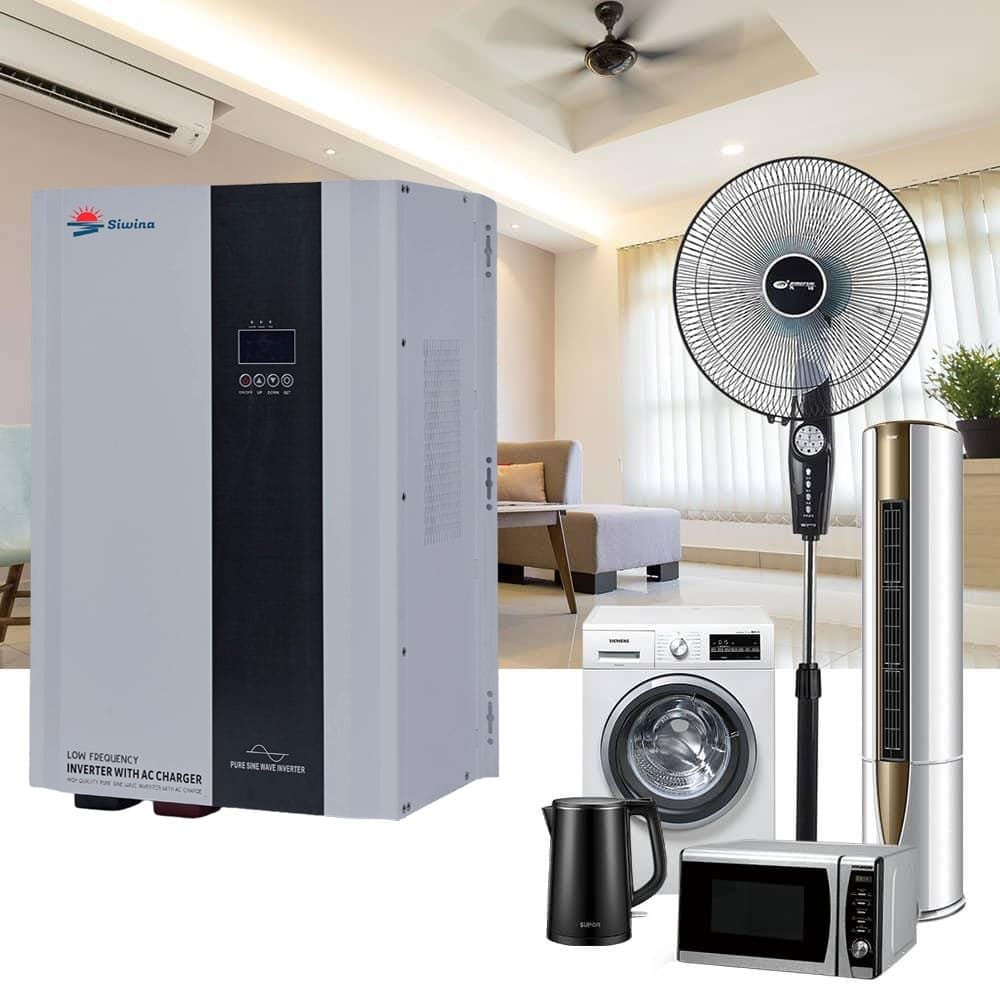How to Choose the Right Off-Grid Solar Inverter: A Guide for Importers
The off-grid solar industry is growing rapidly, especially in regions where access to reliable electricity is limited. As an importer of off-grid solar systems, choosing the right inverter is one of the most crucial decisions you’ll make. Inverters are the heart of any solar power system, and their quality directly impacts the performance and longevity of the entire setup. In this article, we will discuss the key factors that importers need to consider when choosing off-grid solar inverters, with a focus on the most relevant aspects for ensuring system stability, cost-effectiveness, and customer satisfaction.
1. Stability and Reliability: The Core Requirements
When importing off-grid solar inverters, stability and reliability are paramount. These systems are often deployed in remote areas or places with unreliable grid access, where equipment failure can lead to significant disruptions. Importers must prioritize inverters that are capable of maintaining stable power output under varying environmental conditions, such as extreme temperatures, humidity, and other harsh factors. A robust inverter with high shock resistance and the ability to handle transient power surges is essential.
This is where frequency inverters stand out. They are equipped with large capacity frequency transformers that can effectively manage surges and provide better protection against electrical shocks, making them an ideal choice for off-grid applications. In contrast, high-frequency inverters tend to have weaker shock resistance due to their smaller, more compact design, making them less suitable for demanding off-grid scenarios.
2. Performance with Inductive Loads
Many off-grid solar systems power devices like pumps, motors, and air conditioners, which are inductive loads. These devices require stable, continuous power and can generate high inrush currents at startup. Importers need to ensure the inverter can handle these loads without damaging the equipment or causing system instability.
Frequency inverters excel in this area, providing pure sine wave output that ensures smooth and reliable power delivery to inductive loads. This is essential for the longevity of sensitive devices like motors and pumps. High-frequency inverters, however, often struggle with inductive loads, as they may produce unstable waveforms, which can lead to poor performance or even equipment failure.
3. Long Lifespan and Low Maintenance Costs
Given that off-grid solar systems are often located in remote areas, long lifespan and low maintenance costs are critical considerations for importers. A product with a longer lifespan means fewer replacement costs and less downtime, which is crucial in areas where technical support is hard to access.
Frequency inverters typically offer a longer service life compared to high-frequency inverters due to their more durable and stable construction. Frequency inverters can last 10-15 years or even longer, making them a better long-term investment. On the other hand, high-frequency inverters generally have a shorter lifespan, typically around 5-8 years, due to the electronic components used in their construction.
4. Cost-Effectiveness: Balancing Quality and Price
One of the most significant factors for importers when selecting off-grid solar inverters is the cost-effectiveness of the product. While low-cost inverters may seem attractive at first, they often come with hidden costs in terms of shorter lifespan, frequent maintenance, and performance issues. Importers must strike a balance between quality and price to ensure they are offering their customers the best value.
In the long run, investing in high-quality frequency inverters pays off by reducing maintenance and operational costs. The durability, reliability, and performance advantages far outweigh the initial cost difference compared to cheaper, low-quality inverters.
5. Product Certifications and Compliance
For importers, ensuring that the inverters comply with international standards and certifications (such as CE, IEC, ISO, and FCC) is essential. These certifications not only guarantee product quality but also help meet the regulatory requirements in various countries. Compliance with international standards ensures that the inverters will perform safely and efficiently, meeting the expectations of both you and your customers.
6. Intelligent Features: Remote Monitoring and Control
As technology advances, more off-grid solar systems are incorporating smart features such as remote monitoring and control through mobile apps or web platforms. These features allow users to track their system’s performance, monitor energy consumption, and make adjustments remotely. For importers, offering products with smart capabilities is a great way to differentiate your offerings and add value for your customers.
Many frequency inverters now come with built-in Wi-Fi or Bluetooth capabilities for remote management, making it easier for users to monitor and troubleshoot their systems without requiring technical support.
7. After-Sales Support and Warranty
Good after-sales service is essential in ensuring customer satisfaction. Importers should choose manufacturers who provide comprehensive technical support and a solid warranty policy. Fast response times, easy access to spare parts, and clear troubleshooting guidance are all essential for minimizing downtime and maintaining customer satisfaction.
Conclusion
When importing off-grid solar inverters, it is crucial to consider factors like stability, performance with inductive loads, lifespan, cost-effectiveness, product certifications, and intelligent features. Frequency inverters are particularly well-suited for off-grid applications due to their superior reliability, shock resistance, and longer lifespan. They provide a more stable, cost-effective, and customer-friendly solution, making them the ideal choice for importers looking to provide high-quality products to their customers.
At Swina, we offer high-performance frequency inverters designed to meet the needs of off-grid solar systems. Contact us today to learn more about our products and how we can support your business in delivering top-tier solar power solutions.

